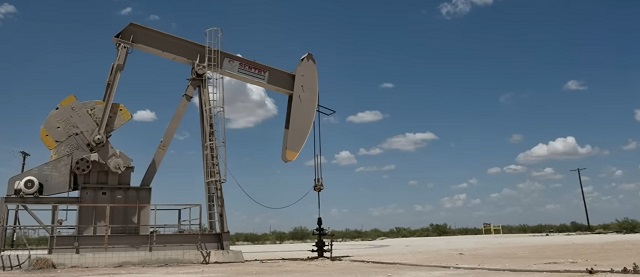Daily Caller
The Silly Peak Oil Debate Rages On

From the Daily Caller News Foundation
“What the Outlook underscores is that the fantasy of phasing out oil and gas bears no relation to fact,” said OPEC Secretary General Haitham Al Ghais
Analysts and professionals in the global energy space have long debated the prospects for reaching peak demand for crude oil. It is an issue that has long sparked debate, some of which becomes emotional among highly invested stakeholders on one side or the other.
In recent years, such stakeholders risk developing cases of whiplash when considering the competing perspectives about this “peak oil” matter published by OPEC and the International Energy Agency (IEA).
IEA has spent the last 12 months predicting an earlier advent of the peak oil phenomenon than pretty much any other experts envision, saying it will come about sometime in this decade, no later than 2030. Not surprisingly, the agency’s analysts doubled down on that projection in its most recent monthly Oil Market Report.
In a section titled “When the Music Stops,” the IEA focused on short-term factors like slowing demand growth in China, where oil consumption has declined year-over-year for the past four months. Noting that Chinese demand growth has slowed to an estimated 180,000 barrels per day (bpd) across 2024, the agency leaned on that data point as a reason to lower its estimated global demand growth to 800,000 bpd.
The same section also pointed to the isolated slowing of U.S. gasoline-deliveries growth in June — a factoid that could simply be statistical noise — as support for its annual growth forecast. But a slowdown in crude demand growth is no surprise, given that economic growth has been slowing throughout 2024. This direct cause-and-effect phenomenon has been a consistent aspect of oil markets across history. It is also a short-term factor whose impact will ultimately be diminished by subsequent events.
In contrast, OPEC’s projections over the past year regarding near-term global demand growth and the anticipated peak in oil demand have reached diametrically opposite conclusions. Last summer, the cartel projected global growth in crude demand for 2024 would be a robust 2.25 million bpd. Slowing economic growth has led OPEC’s analysts to lower that initial prediction over the past two months, but only to 2.1 million bpd — more than double that of both IEA and the U.S. Energy Information Administration (EIA).
Where the concept of peak oil demand is concerned, OPEC has held to an even more oil-bullish stance, stating its projections do not see that threshold being reached anytime during its projection timeframe through 2050. In its annual Global Outlook published last week, OPEC sees oil demand growing by that year to 120 million bpd, a rise of 18 million bpd from current levels.
“What the Outlook underscores is that the fantasy of phasing out oil and gas bears no relation to fact,” said OPEC Secretary General Haitham Al Ghais in the forward to the report.
Al Ghais also pointed out the fact that: “Over the past year, there has been further recognition that the world can only phase in new energy sources at scale when they are genuinely ready, economically competitive, acceptable to consumers and with the right infrastructure in place.” This undeniable reality means that projections of oil demand in the transportation sector being crushed by alternatives like EVs and hydrogen cars are almost certainly overly optimistic. The rapidly faltering market demand for EVs strongly supports that likelihood.
Al Ghais also contends that a “realistic view of demand growth expectations necessitates adequate investments in oil and gas, today, tomorrow, and for many decades into the future.” That contention stands in contrast to the IEA report released in May, 2021, in which IEA Director Fatih Birol urged an immediate halt in all new investments in the finding and development of new oil resources in order to fight climate change. By August of that year, Biral was comically urging oil companies to increase their oil production in order to help re-balance an undersupplied global market.
Episodes like that have led many to question whether IEA bases its projections related to oil markets on data or on wishful thinking. The validity of such questions was only reinforced when Birol announced early this year that the agency’s mission was being expanded into outright advocacy for promoting the energy transition.
So, who is right? We’ll find out in 2030, but the smart money is on the group with billions riding on the answer.
David Blackmon is an energy writer and consultant based in Texas. He spent 40 years in the oil and gas business, where he specialized in public policy and communications.
conflict
‘They Don’t Know What The F*ck They’re Doing’: Trump Unloads On Iran, Israel


From the Daily Caller News Foundation
President Donald Trump expressed frustration Tuesday after Iran broke a ceasefire, prompting retaliation from Israel during a gaggle with reporters on the White House lawn.
Trump announced the ceasefire Monday, saying it was supposed to take effect at 1 a.m. Eastern Daylight Time, but Iran fired missiles at Israel Tuesday. Trump vented, saying the countries had been “fighting so long” they couldn’t make peace.
WATCH:
“You know, when I say okay, now you have 12 hours, you don’t go out in the first hour just drop everything you have on them,” Trump said. “So I’m not happy with them. I’m not happy with Iran either. But I’m really unhappy if Israel is going out this morning because the one rocket that didn’t land, that was shot, perhaps by mistake, that didn’t land, I’m not happy about that.”
“We basically have two countries that have been fighting so long and so hard, that they don’t know what the fuck they are doing,” Trump added.
The United States struck facilities in Fordow, Natanz and Isfahan related to Iran’s effort to develop nuclear weapons early Sunday morning local time, using as many as 14 GBU-57 Massive Ordnance Penetrators in the operation, which involved a 37-hour flight by seven B-2A Spirit bombers.
The American strikes came ten days after Israel launched a military operation targeting the Iranian nuclear program. Iran has responded with repeated missile attacks on Israeli cities and a refusal to resume negotiations over its efforts to pursue nuclear weapons.
Automotive
Supreme Court Delivers Blow To California EV Mandates


From the Daily Caller News Foundation
“The Supreme Court put to rest any question about whether fuel manufacturers have a right to challenge unlawful electric vehicle mandates”
The Supreme Court sided Friday with oil companies seeking to challenge California’s electric vehicle regulations.
In a 7-2 ruling, the court allowed energy producers to continue their lawsuit challenging the Environmental Protection Agency’s decision to approve California regulations that require manufacturing more electric vehicles.
“The government generally may not target a business or industry through stringent and allegedly unlawful regulation, and then evade the resulting lawsuits by claiming that the targets of its regulation should be locked out of court as unaffected bystanders,” Justice Brett Kavanaugh wrote in the majority opinion. “In light of this Court’s precedents and the evidence before the Court of Appeals, the fuel producers established Article III standing to challenge EPA’s approval of the California regulations.”
Kavanaugh noted that “EPA has repeatedly altered its legal position on whether the Clean Air Act authorizes California regulations targeting greenhouse-gas emissions from new motor vehicles” between Presidential administrations.
“This case involves California’s 2012 request for EPA approval of new California regulations,” he wrote. “As relevant here, those regulations generally require automakers (i) to limit average greenhouse-gas emissions across their fleets of new motor vehicles sold in the State and (ii) to manufacture a certain percentage of electric vehicles as part of their vehicle fleets.”
The D.C. Circuit Court of Appeals previously rejected the challenge, finding the producers lacked standing to sue.
“The Supreme Court put to rest any question about whether fuel manufacturers have a right to challenge unlawful electric vehicle mandates,” American Fuel & Petrochemical Manufacturers (AFPM) President and CEO Chet Thompson said in a statement.
“California’s EV mandates are unlawful and bad for our country,” he said. “Congress did not give California special authority to regulate greenhouse gases, mandate electric vehicles or ban new gas car sales—all of which the state has attempted to do through its intentional misreading of statute.”
-

 Business7 hours ago
Business7 hours agoRFK Jr. says Hep B vaccine is linked to 1,135% higher autism rate
-

 Alberta1 day ago
Alberta1 day agoAlberta Independence Seekers Take First Step: Citizen Initiative Application Approved, Notice of Initiative Petition Issued
-

 Crime20 hours ago
Crime20 hours agoNational Health Care Fraud Takedown Results in 324 Defendants Charged in Connection with Over $14.6 Billion in Alleged Fraud
-

 Crime2 days ago
Crime2 days agoSuspected ambush leaves two firefighters dead in Idaho
-

 Health19 hours ago
Health19 hours agoRFK Jr. Unloads Disturbing Vaccine Secrets on Tucker—And Surprises Everyone on Trump
-

 Alberta1 day ago
Alberta1 day agoWhy the West’s separatists could be just as big a threat as Quebec’s
-

 Business2 days ago
Business2 days agoCanada Caves: Carney ditches digital services tax after criticism from Trump
-

 Bruce Dowbiggin1 day ago
Bruce Dowbiggin1 day agoThe Game That Let Canadians Forgive The Liberals — Again

